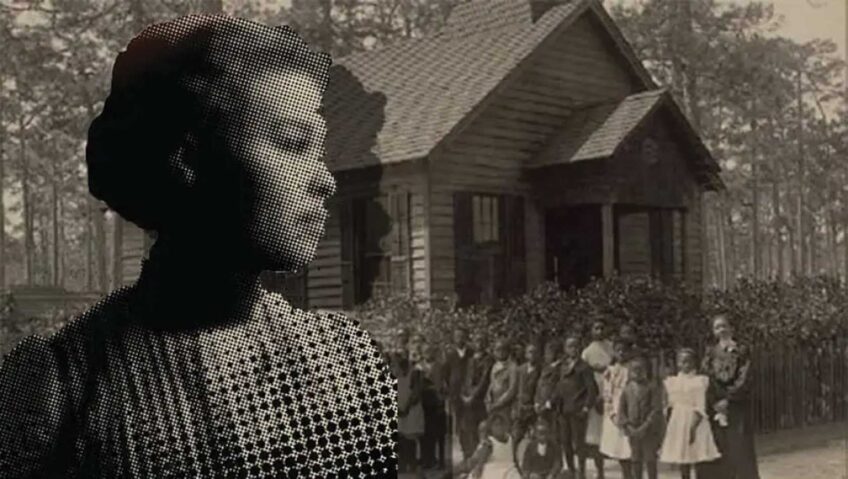Historically Black nursing home facing closure
Benjamin Healthcare Center staff and residents voice concerns

The pending closure of a historic Mission Hill nursing home, established to serve the Black community, would displace more than 70 residents this summer. That move, which its leadership attributed to money troubles, comes as the facility faces allegations of financial mismanagement.
An intent to close the Edgar P. Benjamin Healthcare Center was filed last month with the state Department of Public Health and announced to staff a day later. If approved, the almost 100-year-old nursing home in Mission Hill would shut down July 1. The center, which serves largely residents of color, currently has 76 residents.
Staff, residents and other advocates have expressed concerns that the loss of the Edgar Benjamin, which was founded in 1927 as Rest Haven Nursing Home, would be a major blow to a community organization with a lasting legacy.
“The Benjamin has been there,” said Leslie Henderson, director of admissions and a nurse who has worked at the facility for 24 years. “It has been a beacon of hope in the community for 100 years.”
Kathy Blicker, who has worked at the center in accounts receivable for nine years, said the closure announcement from Tony Francis, president and CEO of the center, came suddenly for staff.
“You didn’t even give us a chance to try and save it,” said Blicker, whose mother used to live in the facility. “It’s like we’re open today and closing tomorrow.”
That abrupt news has left the center in chaos, Henderson said.
“Every day the residents are like, ‘Do we have to leave today like?’” she said. “They’re afraid. This is their home.”
Many nearby facilities don’t have openings as residents of the Edgar Benjamin seek to transfer, Henderson said.
In the announcement of his intent to close the center, Francis cited “insurmountable” financial challenges.
In an email to the Banner, he said the economic climate for long-term care facilities like the Edgar Benjamin is “dismal,” making continued operation unsustainable.
This claim raises concerns for staff and officials. Between 2015 and 2021, Francis’ salary increased over four times, from about $156,200 to nearly $628,600, according to financial records filed with the IRS. According to reporting from Boston 25 TV station, his total compensation, including pension, insurance and payroll taxes, is over $900,000.
According to minutes from the center’s board meetings, Francis started taking loans out of his personal account to fund payroll for staff. In January of last year, he requested 12% interest when taking money out of his account for payroll. As of the end of September, he had used approximately $150,000 in supporting payroll.
Advocates point to other troubling financial incidents in recent years. At the end of 2023, staff at the center went weeks without receiving paychecks, according to reporting from Boston 25, which broke the story.
The center also lost $100,000 in a cryptocurrency exchange, according to the minutes for the nursing home’s April 27, 2023, board meeting obtained by the Banner. According to those minutes, the center tried to get the money back but would have had to pay an additional $20,000. In the same meeting, Francis asked for an annual 5% raise and a bonus of $70,000.
Minutes from the board’s meetings across the past year document the financial challenges of paying for insurance, worker compensation, pharmacy, dietary, linens and union dues, in addition to a union settlement. In October, according to the meeting’s minutes, the center was behind on payments, as all its income was going toward payroll.
According to the Edgar Benjamin’s financial records, between 2014 and 2021, the center’s revenue averaged $12.65 million annually.
Blicker, who interacts with much of the center’s income through her role working with accounts receivable, said money has been coming into the center regularly.
Though she said she doesn’t have access to information about the center’s expenditures, based on its income she was surprised it would have to shut down for financial reasons.
Delroy McDonald, who formerly worked as a bookkeeper for the Edgar Benjamin for nine years, said he was on the committee that selected Francis to take over as president and CEO. At the time, McDonald said Francis looked good on paper, but now he blames Francis for the situation the facility is in.
Many of the concerns of residents and staff were expected to be brought up at a March 12 hearing with the state Department of Public Health, which occurred after the Banner’s press deadline.
The Department of Public Health runs hearings for the closure of centers like the Edgar Benjamin and can offer feedback on the closure plan proposed by a center’s leadership.
The pending closure comes as yet another pull on Roxbury’s resources, following the closure of yet another Walgreens in January, ongoing municipal development proposals in Franklin Park and the state’s tapping of the Melnea A. Cass Recreation Complex to house migrants.
“It just seems like, ‘if it ain’t one thing, it’s another,’” said Joyce Ferriabough Bolling, a veteran political strategist and Roxbury resident.
For Ferriabough Bolling, the closure of the Benjamin marks another instance in which the community’s most vulnerable residents are the most strongly impacted.
Municipal officials have expressed concerns about the closure. District 6 City Councilor Benjamin Weber, alongside at-large Councilor Henry Santana, led a resolution in that body to “strongly urge” leadership at the Benjamin to improve communication with residents and staff around the closure and the push for alternate plans. That order passed unanimously Feb. 28.
“What we’ve seen from the CEO Tony Francis is that the residents have not been put first,” Weber said. “My concern is that as they move toward closure, the residents will get even less care.”
Weber said he’s also concerned that leadership at the Edgar Benjamin seems to be intentionally keeping people out of the facility. His office’s staff wanted to meet with residents at the center but were kept out.
In a statement to the Banner, Francis said state Sen. Liz Miranda toured the facility Friday morning and leadership from the facility met with city officials Friday afternoon.
He said he has heard currently unsubstantiated concerns from community members that the closure of the Edgar Benjamin could lead to the construction of luxury housing in its place.
In his statement, Francis said the board of the facility “hopes to keep the building and site as a community use” once the Edgar Benjamin closes.
Others at City Hall are also concerned. Emily Shea, who heads the Age Strong Commission and has been serving as point person for the city’s response to the closure, said the commission and the mayor’s staff are doing all that’s in their power to address the situation.
But that power is limited. Regulation of nursing homes is a state responsibility, run through the Department of Public Health. Shea said the Age Strong Commission has been working to communicate the staff and resident’s concerns they’ve been hearing to Francis and state entities like the Department of Public Health and the Executive Office of Elder Affairs, but that is largely the extent of what they can do.
Decisions regarding the closure must go through the Department of Public Health, and concerns about the financial situation at the Edgar Benjamin should be directed to the attorney general, she said.
The City Council, too, has limited control. Beyond the Feb. 28 resolution, Weber said he sees the body’s role largely as an advocacy-focused one.
A spokesperson from the attorney general’s office said that while the office doesn’t have a designated role in the closure process, it will stay in touch with state and local leaders about the issue. Rep. Ayanna Pressley, in an email statement, expressed concern about displacement of “critical nursing home space” and said she hopes her office can be helpful in helping residents of the Edgar Benjamin continue to find care within the community.
But community members feel not enough is being done. McDonald said he feels like no one is really trying to maintain the facility’s legacy in Boston’s Black community. Ferriabough Bolling said she thinks officials should consider new solutions.
“I would just hope that all of the powers that be would put their heads together to see how the Benjamin can be helped so that our seniors who are fragile are not displaced,” Ferriabough Bolling said. “I think there’s too much emphasis on the system and what you can or cannot do rather than thinking outside of the box here.”


![Banner [Virtual] Art Gallery](https://baystatebanner.com/wp-content/uploads/2024/05/RLJ3-150x150.jpg)


